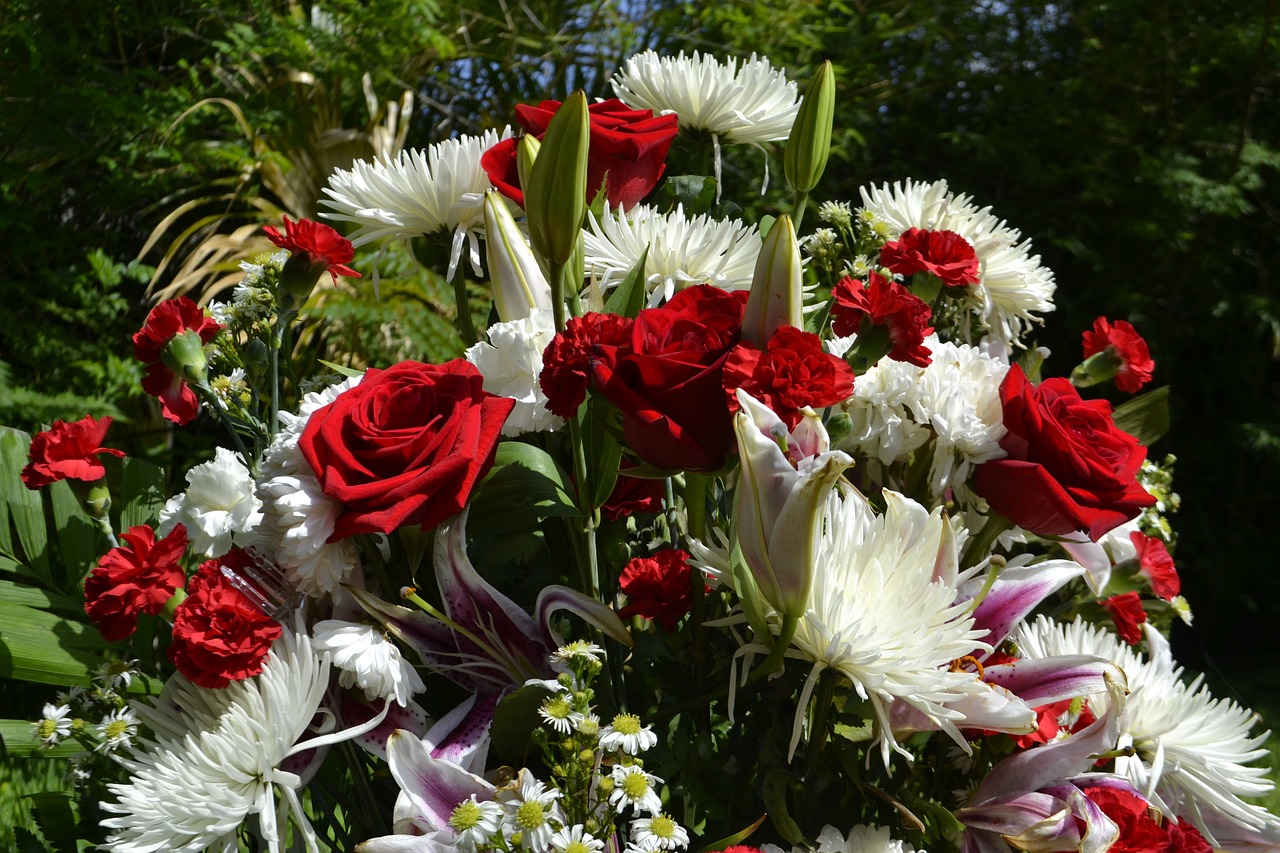
Introduction: Understanding the Significance of Funeral Flowers and Their Symbolism
Funeral flowers play a significant role in honoring the deceased and expressing condolences. They not only add beauty to funeral ceremonies but also carry emotional and symbolic meanings. In this article, we will explore the meaning and symbolism behind different types of funeral flowers commonly used in arrangements. Additionally, we will discuss the cultural and religious customs related to funeral flowers, as well as provide insights on how to choose appropriate funeral flowers. As a resource for funeral planning, including funeral flowers, we will reference Best Priced Funerals, a website that offers comprehensive funeral planning resources and affordable funeral flower options.
Funeral flowers have been used for centuries as a way to pay respects to the deceased and provide comfort to grieving loved ones. They serve as a visual representation of love, sympathy, and remembrance. The selection of funeral flowers is not just about aesthetics, but also about conveying emotions and honoring the life and legacy of the departed.
Popular Funeral Flowers and Their Meanings
Several types of funeral flowers are commonly used in arrangements, each with its own unique symbolism. Here are some popular funeral flowers and their meanings:
- Lilies: Lilies symbolize purity, radiance of the soul, and innocence. They are often chosen to convey sympathy and are a common choice for funeral arrangements. For example, white lilies are often used to represent the purity of the deceased’s soul.
- Roses: Different colors of roses convey different meanings. White roses represent spirituality, red roses symbolize love and grief, and pink roses represent remembrance. Roses are a versatile choice for honoring the deceased, as their colors can be selected based on the relationship with the departed or the emotions being expressed.
- Orchids: Orchids symbolize eternal love and are often chosen for their long-lasting nature. They add elegance and beauty to funeral arrangements and are often used to represent the everlasting bond between the deceased and their loved ones.
- Chrysanthemums: Chrysanthemums have different meanings globally, but they generally symbolize love, truth, and happiness. They are widely used in funeral ceremonies worldwide and can be chosen to convey a message of love and respect for the departed.
- Carnations: Carnations come in various colors, each with its own symbolism. White carnations symbolize love and innocence, red carnations denote admiration, and pink carnations represent remembrance. They are a classic choice for funeral arrangements and can be selected based on the personal relationship with the deceased.
- Daffodils: Daffodils symbolize new beginnings, hope, and renewal. They bring a sense of positivity and optimism to funeral arrangements, serving as a reminder of the cycle of life.
- Tulips: Tulips represent love, hope, forgiveness, and peace. White tulips, in particular, symbolize forgiveness and peace. They add a touch of grace and serenity to funeral arrangements, conveying a message of love and forgiveness for the departed.
- Gladiolus: Gladiolus symbolize integrity, sincerity, and strength of character. These tall and elegant flowers make a powerful statement in funeral arrangements, representing the strong and admirable qualities of the deceased.
- Hydrangeas: Hydrangeas symbolize renewal, heartfelt emotions, and gratitude. Their lush blooms add a sense of abundance and appreciation to funeral arrangements, expressing gratitude for the life and memories shared with the departed.
- Gardenias: Gardenias represent peace, purity, and love. Their delicate and fragrant blooms bring a sense of tranquility to funeral arrangements, offering comfort and solace to grieving loved ones.
- Calla Lilies: Calla lilies symbolize holiness, faith, and rebirth. Their elegant and distinctive shape adds a touch of sophistication to funeral arrangements, symbolizing the faith and hope for a new beginning. Irises signify faith, hope, courage, wisdom, and admiration. These vibrant flowers add a pop of color and symbolism to funeral arrangements, representing the admiration and respect for the departed.
Each type of funeral flower carries its own symbolism and can be chosen based on the personal relationship with the deceased or the emotions being expressed by the sender.
Choosing Appropriate Funeral Flowers
When selecting funeral flowers, it is important to consider the relationship with the deceased and their personality. Think about their favorite flowers or colors that hold special meaning to them. For example, if the deceased had a fondness for roses, incorporating roses into the funeral arrangements can be a meaningful way to pay tribute to their personal preferences.
It is also essential to take into account cultural norms and preferences. Different cultures may have specific flowers or colors that are traditionally associated with funerals. For instance, in Asian and Latin American cultures, chrysanthemums are associated with death and are not typically used for funerals. It is important to be mindful of these customs and choose funeral flowers accordingly.
Furthermore, coordinating the choice of funeral flowers with other arrangements and the overall theme of the funeral can create a cohesive and visually pleasing atmosphere. Consider the style and color scheme of the funeral service and select flowers that complement the overall aesthetic.
Best Priced Funerals offers a wide selection of funeral flowers to accommodate different budgets and styles, making it easier to find the appropriate flowers for your loved one’s funeral. Their website provides detailed descriptions and images of each flower, allowing you to make an informed decision when choosing funeral flowers.
Cultural and Religious Customs Related to Funeral Flowers
Different cultures and religions have unique customs and beliefs regarding funeral flowers. It is important to be aware of these customs and respect the traditions of the grieving family.
For example, in Asian cultures, white flowers are often associated with funerals and are considered appropriate for expressing condolences. However, in some Western cultures, white flowers are associated with purity and are more commonly used in weddings or other joyous occasions. Understanding these cultural nuances can help ensure that the chosen funeral flowers are appropriate and respectful.
Religious beliefs also play a significant role in the selection of funeral flowers. For instance, in Christian funerals, crosses are often used as a symbol of faith and serve as a visual tribute to the deceased. Jewish funerals, on the other hand, typically do not include flowers as part of the funeral ceremony, but it is common to send flowers to the family’s home after the funeral as a gesture of support and sympathy.
By being sensitive to cultural and religious customs, you can choose funeral flowers that align with the beliefs and traditions of the grieving family, providing comfort and solace during a difficult time.
Different Types of Funeral Flower Arrangements
There are various types of funeral flower arrangements that are commonly used to honor the deceased and provide comfort to grieving loved ones. Each arrangement type has its own symbolism and purpose, allowing mourners to choose the one that best represents their relationship with the departed.
- Crosses: Crosses symbolize faith and serve as a visual tribute to the deceased. They are often displayed during religious funeral services, providing a focal point for mourners to reflect on the life and legacy of the departed.
- Wreaths: Wreaths represent eternity and continuity of life. They are circular in shape, symbolizing the cyclical nature of life and death. Wreaths are often displayed at the entrance of the funeral venue or placed near the casket as a symbol of everlasting love and remembrance.
- Standing Sprays: Standing sprays are displayed on an easel and are often used to honor the deceased at the funeral service. They provide a prominent and impactful tribute, attracting the attention of mourners and serving as a visual representation of love and respect.
- Baskets: Funeral flower baskets are versatile and can be placed on stands or used as table arrangements. They offer a more informal and comforting display, creating a warm and inviting atmosphere for mourners.
- Casket Mounds: Casket mounds are arrangements placed on top of the casket. They are designed to complement the overall funeral theme and provide a beautiful farewell. Casket mounds can be customized based on the preferences of the deceased or their family, incorporating their favorite flowers or colors.
- Hearts: Heart-shaped arrangements symbolize love and are a heartfelt tribute to the deceased. They can be displayed on stands or placed near the casket, conveying a message of love and affection for the departed.
- Live Plants: Live plants, such as peace lilies or orchids, can be gifted as a lasting remembrance of the deceased. They symbolize life and growth, serving as a living tribute to the departed. Live plants can be taken home by the family after the funeral and serve as a reminder of the love and support they received during a difficult time.
Each type of funeral flower arrangement carries its own symbolism and significance, allowing you to choose the one that best represents your relationship with the deceased. Whether you opt for a traditional arrangement like a cross or wreath, or prefer a more personalized option like a heart-shaped arrangement, the choice should reflect your love and respect for the departed.
Tips for Ordering Funeral Flowers
Ordering funeral flowers should be done in advance to ensure timely delivery and availability. It is recommended to place orders at least 24 hours in advance, while larger arrangements may require 48 hours or more for preparation. Planning ahead allows the florist to source the desired flowers and create the arrangement with care and attention to detail.
When ordering funeral flowers, consider the preferences of the family and any specific instructions they may have. Some families may have a preferred florist or a specific color scheme they would like to be followed. It is important to communicate these preferences to the florist to ensure that the final arrangement meets the family’s expectations.
Providing accurate information for delivery is crucial. Include the time and location of the funeral service to ensure that the flowers arrive on time and are displayed as intended. If the funeral service takes place at a funeral home or place of worship, provide the name and address of the establishment to facilitate smooth delivery.
Best Priced Funerals offers the convenience of ordering funeral flowers online, with a wide selection to choose from. Their website provides detailed descriptions and images of each flower, allowing you to make an informed decision when selecting funeral flowers. They also offer delivery options, ensuring that the flowers arrive at the designated location on time.
Conclusion: Honoring the Deceased with Meaningful Funeral Flowers
Funeral flowers hold deep symbolism and play a significant role in honoring the deceased and expressing condolences. Each type of flower carries its own meaning, allowing mourners to convey specific emotions and sentiments. Understanding the symbolism behind funeral flowers helps create meaningful arrangements that pay tribute to the life and legacy of the departed.
In this article, we have explored popular funeral flowers and their meanings, as well as highlighted cultural and religious customs related to funeral flowers. We have also discussed different types of funeral flower arrangements and provided tips for ordering funeral flowers. By incorporating these insights into the funeral planning process, you can choose funeral flowers that not only add beauty to the ceremony but also convey heartfelt emotions and respect for the departed.
For more information on funeral planning, including funeral flowers, visit Best Priced Funerals’ website at bestpricedfunerals.com. Their comprehensive resources and affordable options make it easier to navigate the funeral planning process and honor your loved one with beautiful and meaningful funeral flowers.

